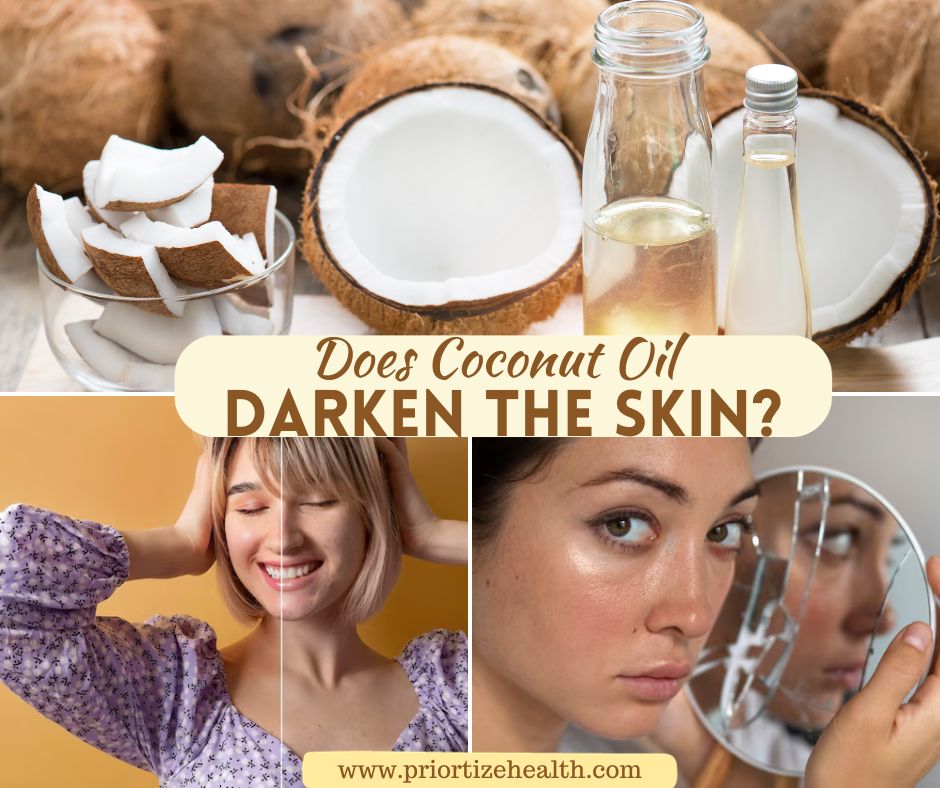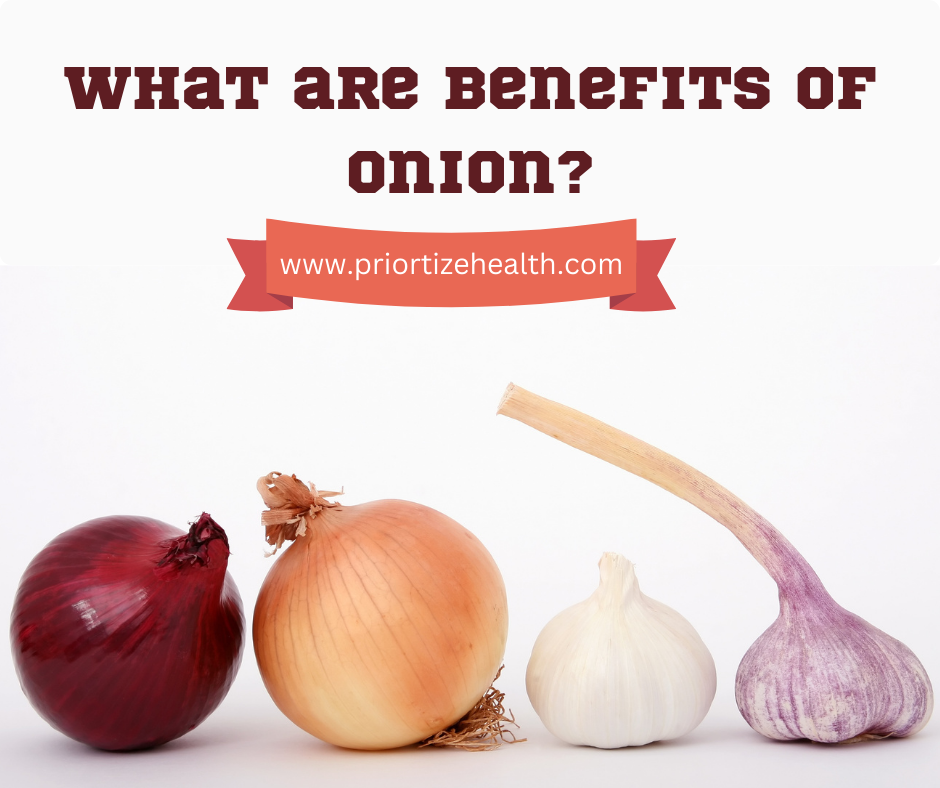
Does Coconut Oil Darken the Skin?
In the ever-evolving world of skincare, certain ingredients and products gain a cult-like following, often spurred by word-of-mouth, beauty blogs, and social media trends. One such superstar of the skincare realm is coconut oil. Renowned for its versatility and potential benefits, coconut oil has become a staple in many households for cooking, hair care, and most notably, skincare. Amid its widespread acclaim, a question has emerged: does coconut oil darken the skin?
The allure of a natural remedy that can moisturize, soothe, and potentially even out skin tone has led many to incorporate coconut oil into their skincare routines. However, alongside the buzz surrounding its benefits, a persistent myth has taken root – the belief that coconut oil can lead to skin darkening. As we delve into the science and separate fact from fiction, join us on a journey to uncover the truth about coconut oil and its impact on the complexion. Is this famed elixir a friend or foe when it comes to skin tone? Let’s find out.
The Composition of Coconut Oil
Before delving into the intriguing world of coconut oil’s effects on the skin, it’s essential to understand what makes this oil a darling of natural beauty enthusiasts. Derived from the kernels of mature coconuts, coconut oil boasts a rich composition that sets it apart from other oils commonly used in skincare.
Fatty Acids: At the heart of coconut oil’s beneficial properties lie its fatty acids. The predominant fatty acid in coconut oil is lauric acid, followed by caprylic acid, capric acid, and myristic acid. Lauric acid, celebrated for its antimicrobial and anti-inflammatory attributes, contributes to the oil’s potential to soothe and protect the skin’s barrier.
Antioxidants: Coconut oil contains antioxidants such as phenolic compounds and vitamin E. These antioxidants help neutralize free radicals, which can cause oxidative stress and contribute to premature aging. By combatting oxidative damage, coconut oil may contribute to maintaining a youthful appearance.
Vitamins: Vitamin E, present in coconut oil, plays a vital role in promoting healthy skin. As a fat-soluble antioxidant, it supports skin repair, reduces inflammation, and contributes to overall skin health.
Moisturization and Skin Barrier Enhancement: Coconut oil’s fatty acids have emollient properties that aid in skin hydration. When applied topically, coconut oil forms a protective layer, preventing moisture loss and maintaining skin suppleness. This is particularly beneficial for individuals with dry or sensitive skin.
Anti-Inflammatory Effects: Several components of coconut oil exhibit anti-inflammatory effects. This can be particularly valuable for individuals with conditions like eczema or psoriasis, as inflammation is a hallmark of these skin issues.
Benefits Of Coconut Oil
Coconut oil, often celebrated as a versatile elixir, has found its place not only in kitchens but also in bathrooms around the world. Its popularity in skincare can be attributed to its potential benefits for the skin, which extend far beyond the realm of skin darkening. Let’s dive into the various ways coconut oil can impact your skin’s health and appearance.
1. Moisturization and Hydration:
One of the hallmark attributes of coconut oil is its exceptional moisturizing capabilities. The fatty acids present in coconut oil create a protective barrier on the skin, locking in moisture and preventing water loss. This quality is particularly beneficial for individuals with dry or sensitive skin, as it can help alleviate dryness, flakiness, and discomfort.
2. Anti-Inflammatory and Soothing Properties:
Coconut oil’s anti-inflammatory properties have earned it a spot in the arsenal against skin irritations and redness. The lauric acid within the oil has been shown to exhibit soothing effects on inflamed skin. Individuals dealing with conditions like eczema, psoriasis, or contact dermatitis may find relief from using coconut oil as part of their skincare routine.
3. Supporting the Skin Barrier:
A robust skin barrier is crucial for maintaining healthy skin. Coconut oil’s fatty acids contribute to this by reinforcing the skin’s natural barrier function. A well-functioning skin barrier helps to keep irritants out and moisture in, resulting in a smoother, more supple complexion.
4. Antioxidant Defense:
The antioxidants found in coconut oil, including vitamin E and phenolic compounds, play a pivotal role in neutralizing free radicals. Free radicals are unstable molecules that can cause oxidative stress, leading to premature aging and skin damage. By integrating coconut oil into your skincare regimen, you provide your skin with an additional line of defense against environmental aggressors.
5. Stretch Marks and Scars:
While not a magical solution, some individuals have reported improvements in the appearance of stretch marks and scars with consistent use of coconut oil. The moisturizing and antioxidant properties of the oil may contribute to skin elasticity and promote the healing process.
Side Effects Of Coconut Oil On Skin
Coconut oil is generally safe for most people when used on the skin, but it can cause side effects in some individuals, particularly those with sensitive or allergy-prone skin. Here are some potential side effects of using coconut oil on the skin:
- Acne or Breakouts: Coconut oil is comedogenic, which means it can clog pores and lead to acne breakouts in some people, especially if applied to the face.
- Allergic Reactions: Although rare, some individuals may be allergic to coconut oil and can experience allergic reactions such as itching, redness, or hives when it comes into contact with their skin.
- Irritation: For some people, coconut oil may cause skin irritation or burning sensations, especially if they have sensitive skin.
- Excessive Oiliness: Coconut oil is very oily, so applying it to the skin in large amounts may make the skin feel excessively greasy, which can be uncomfortable.
- Staining of Clothes: Coconut oil can leave stains on clothing and bedsheets, so it’s important to be cautious when using it on your skin.
To minimize the risk of these side effects, it’s a good idea to do a patch test before using coconut oil extensively on your skin. Apply a small amount of coconut oil to a small area of your skin and wait for 24 hours to see if you experience any adverse reactions.
Additionally, if you have acne-prone or sensitive skin, you may want to use non-comedogenic and hypoallergenic products designed for your skin type. Always consult with a dermatologist or healthcare provider if you have concerns about how coconut oil may affect your skin, especially if you have a history of skin allergies or conditions.
Does Coconut Oil Darken The Skin?
Coconut oil is a popular natural skincare product known for its moisturizing properties. When applied to the skin, it can help retain moisture, promoting a healthier and more radiant appearance. However, it’s essential to clarify that coconut oil is not typically associated with darkening the skin. Instead, it is often used to maintain skin hydration and enhance its overall texture and smoothness.
Some individuals use coconut oil with the hope that it can lighten or reduce the appearance of dark spots, scars, or uneven skin tone. These beliefs are often based on traditional uses and anecdotal evidence. Nevertheless, scientific research on the effectiveness of coconut oil as a skin-lightening agent is somewhat limited. While it may offer some benefits for skin health, it’s not a reliable or well-established method for significant skin lightening.
Coconut oil also provides a minimal level of natural sun protection due to its modest Sun Protection Factor (SPF) of around 4-6. This low SPF can help shield the skin from some of the sun’s ultraviolet (UV) rays, which could potentially prevent some sun-induced darkening. However, it’s crucial to emphasize that coconut oil should not be relied upon as the sole means of sun protection. To safeguard your skin effectively from the sun, you should use dedicated sunscreen products with higher SPF ratings.
The impact of coconut oil on the skin can vary from person to person. While some individuals find that it contributes to a healthier and more radiant complexion, others with sensitive or acne-prone skin may experience clogged pores and breakouts when using coconut oil. These skin issues can indirectly influence skin tone.
In conclusion, coconut oil is generally regarded as safe for skincare and may have certain benefits for skin health and appearance. However, it is not typically associated with darkening the skin.
Factors Affecting Skin Darkening
The phenomenon of skin darkening is not a one-size-fits-all equation; it’s a complex interplay of various factors that come together to create a unique and ever-changing canvas of skin tone. Let’s explore the key influencers that contribute to the fascinating world of skin darkening.
1. Genetics:
The blueprint of skin colour genetics lays the foundation for our skin colour. The amount and type of melanin our skin produces are determined by our genetic makeup. Individuals with darker skin tones have more active melanocytes, resulting in higher melanin levels, while those with fairer skin have less melanin.
2. Sun Exposure:
The primary player sunlight, specifically ultraviolet (UV) radiation, is the primary factor behind skin darkening. When skin is exposed to UV radiation, melanocytes kick into action, producing more melanin to protect against DNA damage. Prolonged or intense sun exposure leads to a deeper tan.
3. Skin Type:
Diversity in response to different skin types react differently to sun exposure. Fair-skinned individuals are more prone to sunburn and tend to tan less easily, while those with darker skin have a natural resistance to sunburn and often tan more readily.
4. UV Intensity and Geography:
Geographical location plays a significant role in sun exposure. Areas closer to the equator receive more intense UV radiation, leading to higher melanin production and deeper tans in individuals residing in these regions.
5. Sun Protection:
The application of sunscreen is a critical determinant in preventing skin darkening. Sunscreen acts as a barrier that filters out UV radiation, preventing excessive melanin production. Regular use of sunscreen is essential in maintaining an even skin tone.
6. Hormones and Pregnancy:
Hormones can impact melanin production. The hormonal changes during pregnancy, for instance, can lead to the development of a condition known as melasma, characterized by dark patches on the skin.
7. Medications and Chemicals:
Certain medications and chemicals can increase sensitivity to UV radiation, resulting in heightened melanin production and temporary skin darkening. Examples include some antibiotics and perfumes.
8. Age and Time:
Skin darkening can accumulate over time due to cumulative sun exposure. With age, the effects of sun damage may become more apparent, leading to an overall darkening of the skin.
9. Inflammation and Healing:
Skin inflammation and injury, whether due to acne, cuts, or burns, can result in post-inflammatory hyperpigmentation – localized areas of increased melanin production that darken as the skin heals.
Which is the ideal way to use coconut oil?
The ideal way to use coconut oil for your skin depends on your skin type and your specific skincare goals. Here are some general guidelines on how to use coconut oil effectively for various skin-related purposes:
1. Moisturizer:
- For normal to dry skin: After cleansing your face or body, apply a small amount of coconut oil to damp skin. Gently massage it in until it’s absorbed. This can help lock in moisture and keep your skin hydrated.
- For oily or acne-prone skin: Use coconut oil sparingly or consider using a lighter, non-comedogenic moisturizer designed for oily skin. Coconut oil can be comedogenic for some individuals, potentially clogging pores and causing breakouts.
2. Makeup Remover:
Coconut oil can be an effective natural makeup remover. Apply a small amount to a cotton pad or your fingertips and gently rub it over your makeup. Wipe away the makeup with a clean cotton pad or wash your face afterward.
3. Body Lotion:
Apply coconut oil all over your body after a shower or bath. It can provide excellent hydration for dry skin, particularly in areas prone to dryness like elbows and knees.
4. Massage Oil:
Warm a small amount of coconut oil between your hands and use it as a massage oil. It can help ease muscle tension and leave your skin feeling soft and smooth.
5. Hair Care:
Coconut oil can also benefit your scalp and hair. Apply a small amount to your scalp, massage it in, and then distribute it through your hair. Leave it in for a while (even overnight) before shampooing to help condition and strengthen your hair.
6. Face Mask (Caution):
Some people use coconut oil as part of a DIY face mask, usually mixed with other ingredients like honey or yogurt. If you have sensitive or acne-prone skin, be cautious with this approach, as coconut oil can cause breakouts in some individuals.
7. Sunburn Relief (Caution):
Coconut oil may offer mild relief for sunburned skin due to its soothing properties. However, it should not replace proper sunburn care, which includes staying hydrated and using aloe vera or over-the-counter sunburn relief products.
Always remember that individual skin reactions can vary. If you’re new to using coconut oil on your skin, it’s a good idea to do a patch test by applying a small amount to a small area of your skin and checking for any adverse reactions like redness or irritation. Additionally, choose high-quality, unrefined, or extra-virgin coconut oil for the best results in skincare applications.
FAQ’s:
Ans: Coconut oil does not have inherent properties to lighten the skin. While it offers various benefits like moisturization and antioxidants, it lacks the active compounds needed for skin lightening. Skin lightening typically involves ingredients like hydroquinone or alpha hydroxy acids, which coconut oil does not contain. If seeking to address skin concerns like hyperpigmentation, it’s advisable to consult a dermatologist for suitable treatments and products.
Ans: Coconut oil does not directly reduce melanin production in the skin. Melanin production is primarily regulated by genetics and sun exposure. While coconut oil offers benefits like moisturization and antioxidant properties, it lacks specific compounds that can influence melanin production. If interested in managing melanin-related concerns, consult a dermatologist for tailored advice and treatments.
Ans: Coconut oil is generally safe for many, but it can lead to clogged pores, breakouts, or skin irritation in some people, especially those with oily or sensitive skin. Allergic reactions or contact dermatitis are rare but possible. Also, coconut oil doesn’t provide strong sun protection and might increase sun sensitivity. It’s recommended to test it on a small area before use and consult a dermatologist if any adverse reactions occur.





